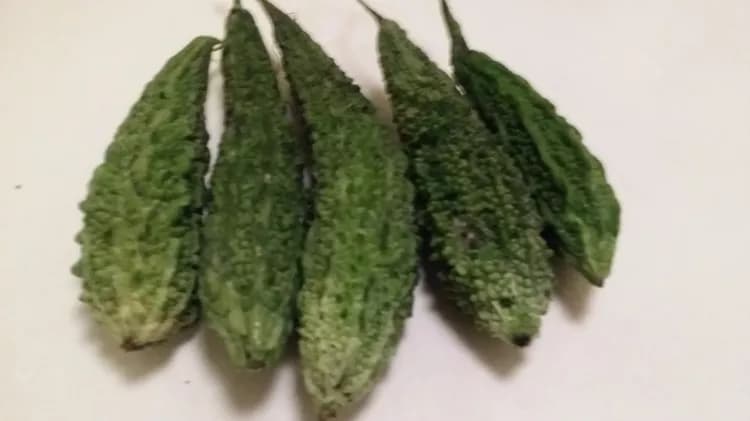Bitter melon (Momordica charantia) or bitter gourd is a tropical and subtropical vine of the Cucurbitaceae family, which also contains squashes, melons, cucumbers, and gourds. It is believed that this food is native to India but is now grown in many regions of Africa, Asia, and the Caribbean. Bitter melon comes in a variety of shapes and sizes. The pods are characterized by smooth lengthwise ridges and uneven pebbly surface. Depending on the type of vine, immature pods are light to dark green. The bitter flesh is white with rough-edged seeds. As the fruits begin to mature, they gradually turn yellow or orange.
Here are 7 health benefits of bitter melon.
1. Bitter melon may help you lose weight.
Bitter melon is a very low-calorie food. One cup of bitter melon contains only 16 calories and contains 3 grams of dietary fiber. This low-calorie nutritionally-dense food is great for staying full and help one lose weight.
2. Bitter melon may help improve your digestive system's health.
Dietary fiber stimulates peristaltic motion and increases the secretion of stomach juices, which eases digestion, prevents conditions like constipation, and protects the body from more serious conditions like colorectal cancer.
3. Bitter melon can assist in antioxidant defense.
Bitter melon contains the essential mineral called manganese, which is important for several enzymes important in energy production and antioxidant defenses. Also, the vitamin C in bitter melon is a powerful natural water-soluble antioxidant that helps the body develop resistance against infectious agents and eliminates cancer-causing free radicals in the body.
4. Bitter melon is great for keeping the hair and skin vibrant and strong.
Adequate vitamin C intake does not only improve the immune system but can also create and maintain collagen, an important protein found in hair and skin.
5. Bitter melon can also improve one’s nervous system.
Bitter melon also provides the brain the necessary amino acids, vitamins, and minerals. Some vitamins, including vitamin B9, or folic acid, play an important role in the regulation of specific amino acids that the nervous system requires. Studies have shown that a deficient amount of dietary folate can increase the homocysteine levels, which can be a dangerous precursor to neurodegenerative diseases like Alzheimer’s disease and Parkinson’s disease.
6. Bitter melon is helpful for pregnant women and their babies.
Bitter melon is a good source of Vitamin B-complex like folate. Folate has shown to help in neural tube formation and red blood cell formation in prenatal babies. A deficiency of folic acid in pregnant women can lead to the birth of underweight infants and may also result in neural tube defects in newborns.
7. Bitter melon can help maintain a healthy blood pressure.
Bitter melon has a high potassium to sodium ratio. This helps the blood vessels relax and maintains a proper blood pressure. Individuals with hypertension may benefit from consuming bitter melon.
Related Articles
Test Your Knowledge
Asked by users
Related Centers
Related Specialties
Related Physicians
Related Procedures
Related Resources
Join DoveHubs
and connect with fellow professionals


0 Comments
Please log in to post a comment.